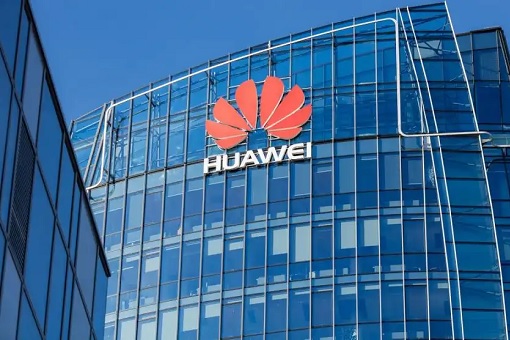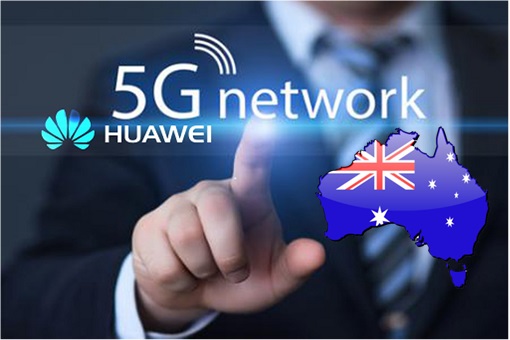Despite being the biggest corporate sponsor of overseas travel for Australian politicians, Chinese Telco giant Huawei has failed miserably to convince that they are not a threat to the country down under. China’s Huawei and ZTE have essentially been banned from providing 5G technology equipment to Australia – in the name of national security.
In June, a research from the Australian Strategic Policy Institute (ASPI) found China-based Huawei paid for 12 trips by Australian federal politicians to the company’s headquarters in Shenzhen – including business class flights, local travel, accommodation and meals – between 2010 and this year. Huawei accounted for 12 out of 55 corporate-sponsored trips by federal politicians.
The Australian politicians who benefited from the sponsored trips include Foreign Minister Julie Bishop, Trade Minister Steve Ciobo, former trade minister Andrew Robb, former speaker of the House Harry Jenkins and eight other Labour and Liberal politicians. There is nothing illegal about paying for politicians’ travel on “study tours”, nor it is illegal for politicians to accept such trips.

However, it raises questions about Huawei’s motives and whether the government of Malcolm Turnbull’s final decision would be influenced by such free trips. Fergus Hanson, director of ASPI said – “The Australian Prime Minister is about to make one of the biggest decisions of the year on whether Huawei should be able to participate in the 5G network.”
Under tremendous pressure, Turnbull administration has little choice but to drop the Chinese tech giant from taking part in the rollout of 5G mobile infrastructure. The Australian prime minister himself is fighting for his survival. Although technically Malcolm Turnbull is still the Prime Minister, he no longer has the trust of the Liberal party as his government collapsed under mass resignations of ministers.
Deeply disappointed, Huawei took to Twitter on Thursday saying that the Australian government had made the move despite the Chinese firm “safely and securely” delivering wireless technology in the country for nearly 15 years. It is no coincidence that in the U.S., Huawei and ZTE are restricted from selling telecoms equipment due to national security concerns too.
We have been informed by the Govt that Huawei & ZTE have been banned from providing 5G technology to Australia. This is a extremely disappointing result for consumers. Huawei is a world leader in 5G. Has safely & securely delivered wireless technology in Aust for close to 15 yrs
— Huawei Australia (@HuaweiOZ) 22 August 2018
Mr. Turnbull was caught between a rock and a hard place. Blocking Huawei from the country’s 5G network could sour relations with China, something that Australia might not be able to afford in the long run. However, allowing the Chinese giant to provide equipment is tantamount to giving China backdoor access – or spying – to its backbone of Australia Internet.
As early as February this year, Prime Minister Malcolm Turnbull was reportedly briefed on concerns held by the US about Huawei’s involvement in Australia’s 5G network during a meeting in Washington. Australia, seen as the “Deputy Sheriff” of the United States in the Asia-Pacific region, is trying to mirror President Trump administration policies.
Fifth-generation wireless, or 5G, is the latest mobile internet technology engineered to greatly increase the speed and responsiveness of wireless networks. With 5G, data transmitted over wireless broadband connections could travel at rates as high as 20-Gbps by some estimates – making it the buzzword as the backbone of future cities and even driverless cars.

Many countries, including China and the U.S., are laying the groundwork to roll this technology out in the next few years. However, as the race to become the leader in the 5G technology gets fierce, it becomes highly politicized as the world’s two biggest economic superpower refuse to give way to each other.
In Australia, it isn’t too hard to justify why Huawei and ZTE should be banned from such critical technology. Huawei Australia has repeatedly denied that it is controlled by Beijing. However, Australian MPs argue that China’s National Intelligence Law compels all organisations and citizens to support, assist and cooperate with intelligence work. Therefore, Huawei’s equipments are potentially espionage tools.
Danielle Cave, senior analyst at the Australian Strategic Policy Institute’s International Cyber Policy Centre, said Australia’s ban on telecommunication companies “likely subject to extrajudicial directions” was clearly directed at addressing China’s 2017 national intelligence law. She said Huawei’s alleged links to the Chinese Government and military is obvious.

Huawei’s Australian chairman John Lord said in June that the company had received legal advice that its Australian operations are not bound to Chinese laws and he would refuse to hand over any data to the Chinese government in breach of Australian law. Still, Australia isn’t convinced and announced no combination of technical security controls sufficiently mitigated the risk.
The effective ban on Huawei may leave the Finnish and Swedish multinationals Nokia and Ericsson as the most likely developers of 5G technologies adopted by Australian Telcos, but potentially raising concerns of higher costs and the pair’s ability to satisfy demand. Interestingly, some of Nokia and Ericsson equipments are actually manufactured in China.
Other Articles That May Interest You …
- Corruption In Australia? Huawei The Biggest Sponsor Of Australian Politicians
- Trump Has 2 Ways To Stop China From Becoming A Global Leader In Technology
- Vanuatu Military Base – Australia Panic As China Secretly Militarizing Its Backyard
- US-DOJ Investigates Huawei For Violating Iran Sanctions – It’s All About Business, Stupid!!
- The Unbelievable Tales Why Malaysia Police Chief Refuses To Claim Back His AUD$320,000 Frozen By Australia
- China Reveals Strategy To Fight U.S. Trade War – Stop Buying American Debt
- Here’s How This Australian Bank Laundered Dirty Money “54,000 Times” Using ATM
- China Invasion – Top 10 American Iconic Brands Now Owned By Chinese

|
|
August 23rd, 2018 by financetwitter
|


|

|

|

|

|

|




























The reason to the kangaroo ban is obvious. The gweilos, from america to australia, are indeed running scared and nervous about China’s rise and Chinese power. LOL.
But their actions won’t stop and can’t stop China. And all they westerners can do is show their desperation.. Hehehe.